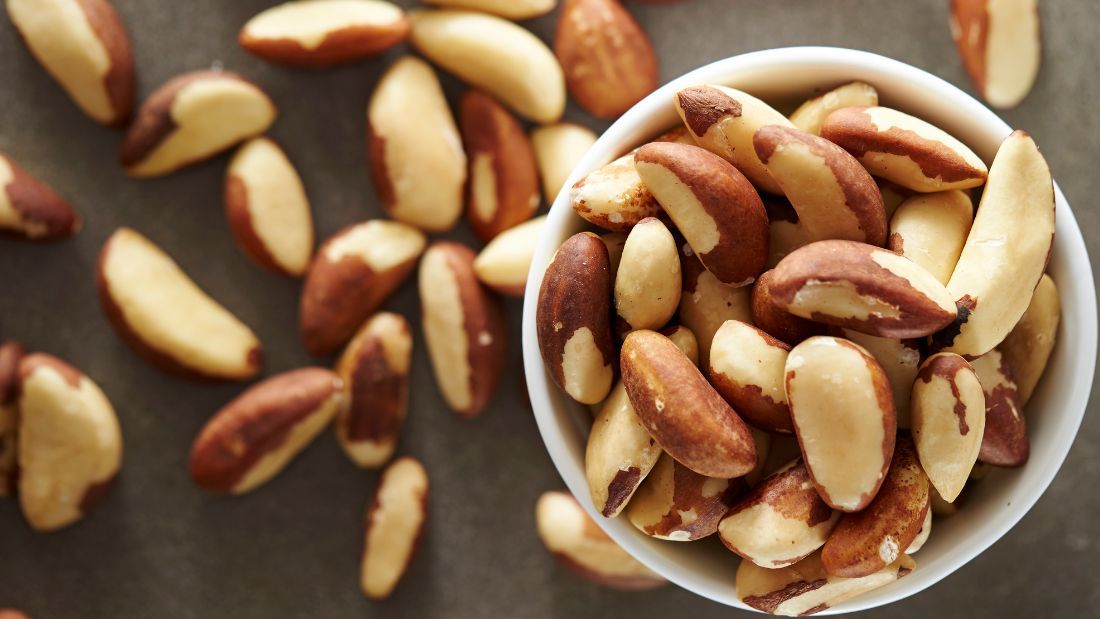Brazil Nuts

As the name suggests, Brazil nuts come from South America and are almost exclusively harvested from wild growing trees. The Brazil nut tree is among the largest and longest lived trees in the Amazon rainforest, living several hundred years.
Nutrition
Brazil nuts are an exceptionally rich source of selenium, a mineral needed for a healthy immune system, thyroid function and reproduction. Just one Brazil nut provides your recommended daily dose of selenium. On the other hand, eating too many Brazil nuts may supply too much selenium, which is toxic in high amounts. So, adding a few to your daily snack is a healthy habit but don’t eat a whole packet.
Brazil nuts are also a good source of magnesium, important for nerve and muscle function, and copper, which is essential for red blood cell formation, collagen manufacture and many vital reactions in the body.
When it comes to fats, Brazil nuts contain mostly unsaturated, healthy fats but they also pack some saturated, unhealthy ones. However, as we should only eat a few at a time, it’s not an issue – we wouldn’t recommend eating more than three a day.
Radioactivity
You may have heard that Brazil nuts are radioactive but don’t be alarmed! Brazil nut trees are very tall and old and, as such, have roots that go deep, which means they reach down to soil high in natural radium. The roots take up some of the radium and tiny amounts make their way into the nuts. In practice, it means Brazil nuts contain more radium than other foods but it’s still a negligible quantity that doesn’t put your health at risk.
Sustainability and ethics
As Brazil nuts are only harvested in the wild, they are one of the most sustainable nuts. The Brazil nut trade allows local indigenous communities to generate income while preserving the rainforest. However, the nut collectors have a tough job because they have to trek through the jungle with all its dangers and falling Brazil nut fruits are so heavy that they can cause serious injuries. They then have to carry the nuts on their backs to collection centres. Once the nuts reach processing factories, they have to be sorted, dried, boiled, shelled, cleaned, selected and packed. Workers in these factories often experience bad treatment, poor salaries and many are just children.
The solution? Buy Fair Trade nuts when possible as that ensures fair earnings for the workers and no child labour.
How to use Brazil nuts?
As we should only eat two or three at a time, it’s best to simply add them to your snack or breakfast. If you make your own energy balls or bars, you can add one Brazil nut to each so you always know how much you’re eating.




